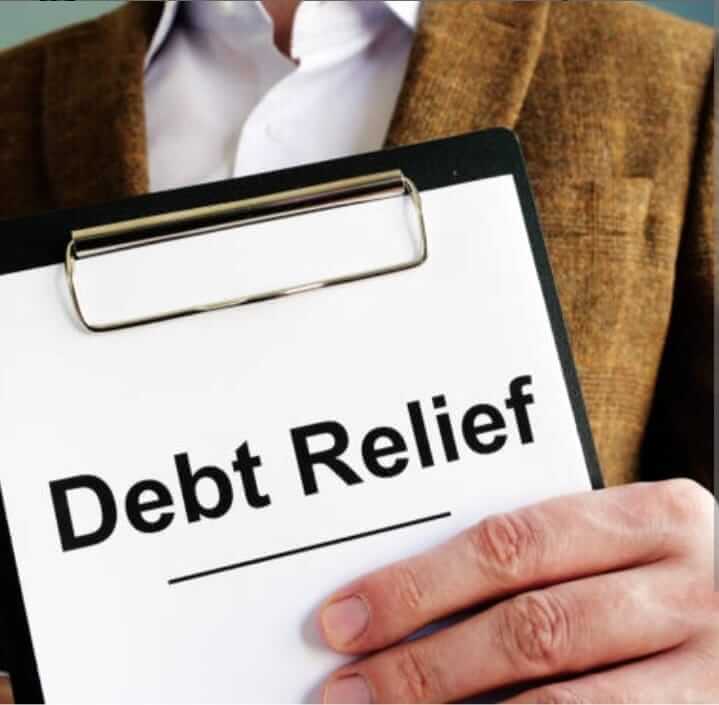Options to avail Debt Relief
Pak Chronicle Report
Debt can be overwhelming, stressful, and a major burden on your financial wellbeing. However, there are options available to help you alleviate the stress of debt and take control of your financial future. Debt relief is a term that encompasses a variety of strategies for managing and reducing your debt, and understanding your options can help you make the best decision for your unique financial situation.
What is Debt Relief?
Debt relief refers to any strategy or program designed to help individuals or businesses manage or reduce their debt. This can include a variety of approaches, such as negotiating with creditors, consolidating debts into a single payment, or pursuing bankruptcy. The ultimate goal of debt relief is to reduce the total amount of debt owed, lower monthly payments, and improve your overall financial standing.
Debt Consolidation
Debt consolidation is one strategy for debt relief that involves combining multiple debts into a single payment. This can make it easier to manage your debt and lower your monthly payments by negotiating a lower interest rate or extending the repayment term. Debt consolidation can be done through a variety of methods, including a personal loan, balance transfer credit card, or home equity loan.
Debt Settlement
Debt settlement involves negotiating with creditors to settle your debt for less than the full amount owed. This typically requires working with a debt settlement company that will negotiate on your behalf and create a payment plan to help you settle your debt over time. Debt settlement can be an effective strategy for reducing your total debt and making your payments more manageable, but it can also have a negative impact on your credit score.
Bankruptcy
Bankruptcy is a legal process that allows individuals and businesses to discharge some or all of their debts and start fresh. There are two main types of bankruptcy for individuals: Chapter 7 and Chapter 13. Chapter 7 bankruptcy involves liquidating assets to pay off creditors, while Chapter 13 involves creating a repayment plan to pay off debts over a period of three to five years. Bankruptcy can have a significant impact on your credit score and should be considered a last resort.
Credit Counseling
Credit counseling is a service that provides guidance and education on managing debt and creating a budget. A credit counselor can help you understand your options for debt relief and create a plan to pay off your debts over time. Credit counseling is typically offered by nonprofit organizations and can be a useful resource for those struggling with debt.
Final Thoughts
Debt relief can be a valuable strategy for managing and reducing your debt, but it’s important to understand your options and choose the best approach for your unique financial situation. Debt consolidation, debt settlement, bankruptcy, and credit counseling are all potential strategies for debt relief, and each has its own benefits and drawbacks. If you’re struggling with debt, it’s important to seek professional advice and carefully consider your options before making any decisions.
Debt Relief Programs in USA
There are several debt relief programs available in the US that can help individuals and families who are struggling with overwhelming debt. Some of the most popular debt relief programs in the US include:
Debt Management Plans (DMPs): A DMP is a program that helps individuals pay off their debts by consolidating their debts into a single monthly payment. A credit counseling agency negotiates with the creditors on behalf of the individual to reduce interest rates and fees.
Debt Settlement Programs: Debt settlement programs negotiate with creditors to settle debts for less than the full amount owed. While debt settlement can be a good option for some people, it can also have negative consequences, such as damaging your credit score.
Bankruptcy: Bankruptcy is a legal process that can help individuals and businesses who are unable to repay their debts. There are two main types of bankruptcy for individuals: Chapter 7 bankruptcy, which involves liquidating assets to pay off debts, and Chapter 13 bankruptcy, which involves creating a repayment plan to pay off debts over several years.
Student Loan Forgiveness Programs: Student loan forgiveness programs can help borrowers who are struggling with student loan debt. There are several types of student loan forgiveness programs available, including Public Service Loan Forgiveness and Income-Driven Repayment plans.
It’s important to note that each of these debt relief programs has its own benefits and drawbacks, and what works for one person may not work for another. It’s always a good idea to speak with a financial advisor or credit counselor before making any decisions about debt relief programs.
Ends



